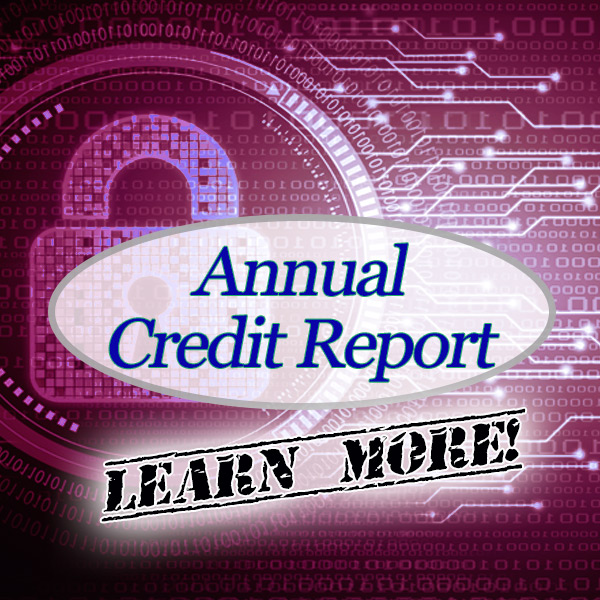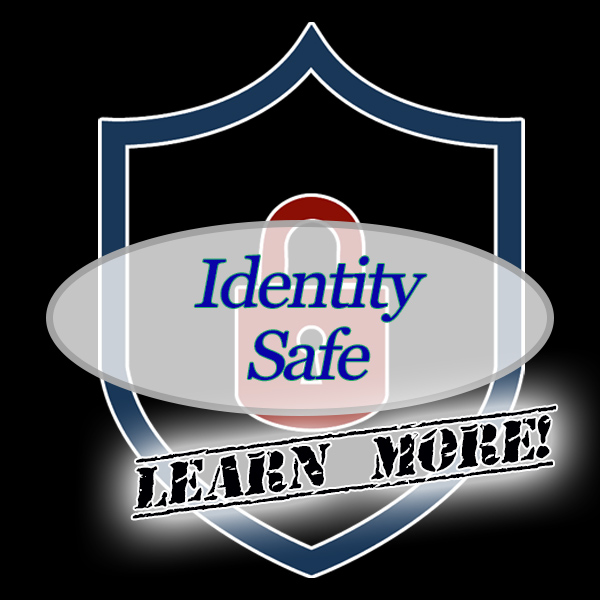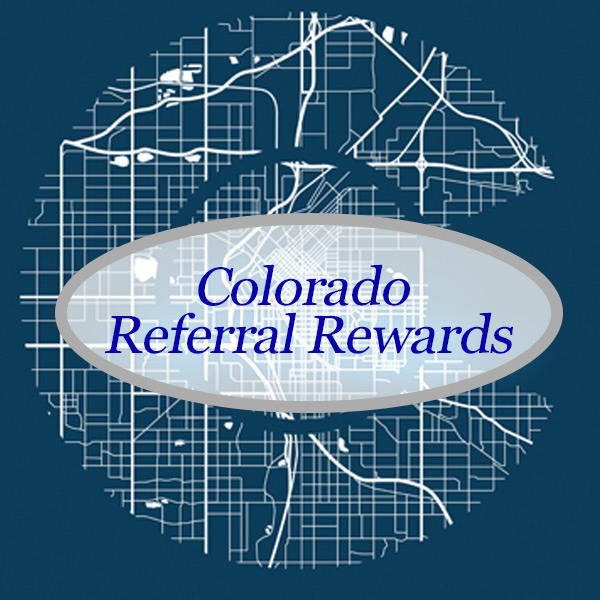
Check Cooking ScamsClose/ Open
"Check cooking" is the process of visually altering the image of a stolen check, and then depositing it - either as a paper check, or through a remote deposit capture.
Frequently, these checks will be taken from stolen or intercepted mail, before being edited and fraudulently deposited. It is strongly advised that, in place of mailing a check, you use a more secure method, such as a credit card or ACH transfer to make payments. If you have any questions about setting up alternate payment methods, we will be more than happy to walk you through it - simply call us at 303-740-7063!
If you still wish to mail checks, please consider the following:
- Don't mail checks from home - take them to the nearest post office and drop them off directly.
- Know when your mail is delivered, and check your mail daily to prevent mail theft.
- If you're planning to be out of town, arrange for the post office to hold your mail until your return.
- Continually monitor your accounts and watch for any suspicious transactions.
- Any member who suspects they may be a victim of a check cooking scam should contact Arapahoe Credit Union as soon as possible.
Romance Scams Close/ Open
Released by DA Office, 18th Judicial District
Romance Scams typically start with fake profiles on online dating sites, websites, an online chat room, or a social media platform – to create a feeling of intimate trust with the intention of scamming the victim out of money. Profiles are created by using stolen photos and text from real accounts or elsewhere. The scammers often claim to be in the military, working on an oil rig or providing a volunteer medical service overseas. These are their reasons for not being able to meet victim in person. Over a short period of time, the scammer builds a fake relationship with the victim, exchanging photos and romantic messages, even talking on the phone. These scammers will make the victim feel special and needed, often preying on people who are widowed, divorced, and isolated. They try to develop an intimate relation quickly, lure the victim into sharing financial and personal information and may even propose marriage and offer to meet in person, but will never follow through on either promise.
What they will do, is request money from the victim. Once money is sent, they continue to ask or just disappear altogether. Romance scams can happen to people of any gender and can be devastating both financially and emotionally. In many cases, the victim may even resort to suicide due to financial and emotional loss as well as embarrassment.
Red Flags
- The scammer is quick to call it love, will begin speaking of a future together, and may even offer a marriage proposal. All of these promises, without actually meeting the victim.
- Questionable language or grammatical errors – scammer may claim to be from the victim’s hometown, but has poor spelling or grammar, uses overly flowery language or uses phrases that don’t make sense.
- The scammer's profile contains vague or few images across platforms.
- Romance scammers asks for money for emergencies, travel, hospital bills or may ask you to deposit checks through your own banking accounts.
- The scammer wants to move off dating site or social media to a more personal communication platform.
- The scammer makes plans to meet victim, but an emergency comes up. Excuse after excuse. Victim never meets their new “romantic partner.”
Tips to Keep You Safe
- Never send or wire money. Never send gift cards.
- Slow down – talk to family, friends, people you trust.
- Research, verify, cross-check - conduct an online search to cross-check the person’s name, photo, location, email address and other details for legitimacy. Google and conduct a “reverse image search.”
- Ask specific questions about details given in a profile. Scammers will often stumble in providing accurate answers, including victim’s name. Scammer will often become agitated with questions being asked. May quickly try to get off site or the phone call.
- If money is sent, report it immediately to financial institutions, the Federal Trade Commission
Public Charging StationsClose/ Open
Released by DA Office, 18th Judicial District
Be Aware: Cybersecurity Experts warn that bad actors can load malware onto public USB charging stations to maliciously access electronic devices while they ar ebeing charged. Malware installed through a corrupted USB port can lock a device or export personal data and passwords directly to the perpetrator.
Safety Tips: Use an AC powered outlet instead. The FCC also suggests you bring your own AC, car chargers, power cords, and USB cables when you travel. The FCC also recommends carrying a charging-only cable, which prevents data from sending or receiving while charging.
Don't Get ScammedClose/ Open
Released by DA Office, 18th Judicial District
- Don't let anyone rush you. Process and understand what is happening.
- Research the legitimacy of a company or organization and verify a person's credentials before giving out confidential information.
- Keep your social media accounts private to prevent scammers from getting personal information.
- Never wire or ttransfer money over to someone without verifying the person or organization.
- Upload any suspicious images and pictures onto Google Reverse Images Search to determine origin.
- SHare and discuss with someone you trust if you're unsure it's a scam.
- Ignore, block and delete unknown calls, emails, and texts.
- Report fraudulent activity and scams.
Government Imposter and Travel ScamsClose/ Open
The following contains links to sites not owned or operated by ACU. Please review their terms of use.
District Attorney's Office - 18th Judicial District
Released by DA Office, 18th Judicial District
Imposter scams continue to be one of the highest areas of complaints with our Consumer Fraud Protection Unit and with our partner law enforcement agencies. Imposter solicitations and activities are negatively impacting all age demographics on both a local and national level.
IRS
- You are told you owe a tax debt that you must pay immediately, usually through a gift card payment, wire transfer or prepaid debit card.
- You are threatened with an arrest, deportation if you’re a recent immigrant, loss of a business or loss of your driver’s license if you don’t pay up.
- Caller may know the last four digits of your SSN or give you a fake IRS badge number.
- Sometimes, if you don’t pay up, you get a second call that’s supposedly from the police or the Department of Motor Vehicles – a spoofed number is used.
Social Security Administration
- Someone has used your SSN to apply for new credit cards and you could lose your benefits.
- SSA imposters try to get you afraid and worried, then they ask you to “confirm” your SSN.
- Sometimes, they request a fee to “reactivate” your blocked SSN or get a new one
- They warn you that your bank account is about to be seized and you need to withdraw all your money. They may then offer to assist you in opening a new account.
- Imposters may not want money, rather your personal information to commit future ID Theft.
Medicare
- May ask you to provide your Medicare number and credit card information over the phone to sign up for coverage or to maintain your coverage.
- They may inform you that your Medicare account has been compromised, and you need to protect your savings by moving money out of your bank into a “safer account”.
Early Signs That It Is NOT the Government
You Recieve A Cold Call
- Legit agencies NEVER call, email or text you. They use U.S. Postal System.
- Your caller ID says “FTC” or “IRS,” and the phone number has the “202” Washington, DC area code. You might even look the number up and see that it’s a real government phone number.
Caller Will Ask You for Your Social Security Number
- IRS, SSA, and other federal and state agencies will never ask you for your SSN over the phone. Beware.
You Are Asked To Purchase A Gift-Debit Card or Make A Wire Transfer
- Agencies never require payment in these forms. Easy method to “wash” funds. Methods are untraceable and unrecoverable.
Sense of Urgency - You Must Act Immediately
- Agencies are never in a hurry, even when you want them to be. They will never force you to act immediately. Forceful, threatening or aggressive language to do so are a red flag.
You Recieve Threatening Statements
- "There is a US Marshal, Sheriff, Law Enforcement (armed) out with a warrant for your arrest within the next 24 hours."
Imposter Local Calls - State and County Agencies and Entities (Spoofed)
Law Enforcement Agencies
- Local Sheriff and Police Departments
Utility Companies
- Xcel Energy, Denver Water, etc.
Local and Brand Name Entities
- Charities, Amazon, Target, Microsoft
Common Messaging and Tactics Used on Victims
- "You Have An Outstanding Fine or Fee", Warrant for Arrest, Missed Payments, Urgency, Real Names, Gift Card Payment, Tech Support Asking for Access, Spoofed Numbers, Told "Do Not Hang Up to Verify", Asked to Meet Locally to Make Payment...
Click/tap here for protective travel tips and more.
Gift Card Payment ScamClose/ Open
The following contains links to sites not owned or operated by ACU. Please review their terms of use.
District Attorney's Office - 18th Judicial District
Released by DA Office, 18th Judicial District
In an coordinated effort to educate and protect the residents of the 18th Judicial District, the Office of the District Attorney, in conjunction with law enforcement agencies in Arapahoe, Douglas, and Elbert Counties, are bringing a heighten awareness around Gift Card Payment Scams. The 18th Judicial District is expanding its partnership awareness campaign within Albertsons-Safeway grocery stores.
Nationally, gift card payment scams have become one of the top areas of fraud. Our own local community has experienced a substantial increase in activity over the past year. Imposter solicitations involving government, local law enforcement, utility companies, and well known brands like Amazon, are on the rise. Criminals, posing as agents or representatives, assert that your account-status has been compromised, you have outstanding payments-fines or there is a warrant out for your arrest. To satisfy the issue, you are directed to make an immediate payment by purchasing gift cards and revealing the gift card information to the imposter entity. Payment requests can be as high as $2500 to $6000. If asked by a store employee the purpose of the purchase, criminals instruct their victims to state that the cards are being purchased for personal reasons.
Albertsons-Safeway employees are trained to inquire and respond to customers who may be buying gift cards as a means to make a payment to another person or entity. In-store signage is currently being placed by gift card kiosks and check-out counters reminding customers that GIFT CARDS ARE FOR GIFTS. NOT PAYMENTS! Signage presents a series of short questions to assist the customer in determining if they are currently in the process of purchasing cards for fraudulent purposes. If a determination of fraud is made, customers are given information containing phone numbers of local law enforcement to call and report the activity.
Amazon Customer Support Scams Close/ Open
Scammers are pretending to be Amazon workers and contacting people claiming there's a problem with their accounts or orders. Why? To steal personal and financial information, extract money from you to gain access to your computer.
Click/tap here for typical messaging, red flags, and more.
Bitcoin Blackmail Close/ Open
The following contains links to sites not owned or operated by ACU. Please review their terms of use.
District Attorney's Office - 18th Judicial District
Released by DA Office, 18th Judicial District
Recently, the Consumer Fraud Protection Division of the 18th Judicial District Attorney’s Office has fielded increasing numbers of complaints from concerned citizens. Several members of our community have received emails on their personal accounts from unknown sources stating that their computer has been hacked, their webcam is being monitored, and their contact list has been seized. In addition, the scammers state that they have recorded the complainant visiting adult websites and threaten to distribute the video within hours to family and friends unless they deposit $2000.00 in bitcoin into a specified account. These complaints seem to be consistent with similar incidents that are taking place across the state of Colorado and even on a national level. This is a scam!
The details and circumstances have been very similar, if not exact, with each complaint. The name of the sender varies. The email subject line may contain a previous or partially-correct email address and password used by the complainant. This leads the recipients to open the email, even though the sender was unknown to them. Most recipients suspect it is scam because of the emails reference non-existent cameras or non-existent social media accounts, but they still are concerned.
Suggested Action:Stop and set aside your emotional reaction! Do not open any other suspicious emails or attachments. Do not pay anything. Delete the message. Update and change your passwords (regularly chose strong ones).
If you or someone you know receives this email or one similar in nature, please report it to:
- Federal Bureau of Investigation – Internet Crime Complaint Center: www.ic3.gov
- Federal Trade Commission: www.FTC.gov/Compl
- Consumer Fraud Protection – 18th Judicial District Colorado: consumer@da18.state.co.us
If you receive an email with threats or acts of extortion where the sender is unknown, it appears to be a large-scale or general message, or it may relate to a recently known data breach, start by filing a complaint with the FBI and FTC at the links above. These government agencies have expanded resources to probe further and determine if complaint is a regional or national matter. The more information they receive from a broad population base, the more effective they can be in identifying root sources and suppressing the scammers. Always feel free to contact our office to report the matter. We are here to support you.
Should you receive a threatening email or communication from a known individual or you feel a particular email is a direct personal threat against you, please report the incident to your local law enforcement agency and to our Consumer Fraud Protection Division. You may contact our hotline at (720) 847-8547 or email us at consumer@da18.state.co.us.
18th Judicial Consumer Protection Line: 720-874-8547
Coronavirus Insight and Scams Close/ Open
The following contains links to sites not owned or operated by ACU. Please review their terms of use.
Coronavirus Fears are Fueling Scams and Price Gouging
Criminals don't rest and they were quick to pounce on current events. Be wary of any unsolicited emails :
- Asking you to follow any unknown link.
- Offering vaccinations.
- Purporting to be from the CDC or other health organizations.
- Offering "Investment Opportunities."
Reliable Tips to Keep Safe from the Virus
There's always going to be false information out there. We recommend you go to reliable sources over social media or unsubstantiated sites. For more information, visit the CDC page here.
Reliable Disease Updates
Again, this is an enormously dangerous time for disinformation. Keep updated on Coronavirus developments from authentic sources only. For more information, visit the CDC Coronavirus page here.
Unlawful Robocalls Close/ Open
The following contains links to sites not owned or operated by ACU. Please review their terms of use.
District Attorney's Office - 18th Judicial District
Unlawful Robocalls are Going Away
Good news! As of this year, phone companies now have the authority to legally stop fraudulent robocalls from being forwarded on to customers. This follows the creation of SHAKEN/STIR – multi-verification technology recently developed by the phone industry that can now accurately distinguish misleading robocall phone numbers from legitimate numbers associated with school closure notifications, medical appointment reminders, etc. This level of verification was necessary to assure the industry that vitally important calls which might otherwise be mistaken as scams would still go through to customers.
To further aid in the reduction of illegal calls, the federal TRACED Act was signed into law late last year to expand the detection of such perpetrators operating within the U.S. and from around the globe. Since the initiation of auto dialers, i.e., devices that send out thousands of calls simultaneously, Illegal robocalls have been difficult to control, especially those originating overseas, and which comprise the bulk of scam calls coming in to the U.S. Penalties upwards of $10,000 can now be imposed on those who are caught. Another big take-away as a result of these efforts will likely be a reduction in spoofing, i.e., fake numbers that show up on caller ID’s for the purpose of tricking consumers into picking up their phones.
Other important points:
- SHAKEN/STIR technology only interacts with digital communication devices, e.g., cell and internet-connected phones (VOIP). Unfortunately, older analog landline phones, considered outdated by today’s standards, cannot interface with wireless or digital phone systems. However, land-line users who also have cell phones should explore cell phone apps that can connect with and block unwanted calls left on their landlines at a distance. For more information, go to: www.Mymail.com., or contact your phone company.
- By law, phone companies cannot charge a fee to customers for this call-blocking service.
- Consumers are still encouraged to add their cell and landline numbers to the Federal and Colorado Do Not Call registries. Unlike typical scam calls that are deliberately placed to fool consumers into forking over money, legitimate businesses are still allowed to solicit consumers over the phone if the business has had dealings with that consumer within the past 18 months, and/or the consumer has given his/her expressed permission allowing such calls. Pollsters, political organizations and non-profit agencies are also allowed to call. Legitimate agencies who violate this law by not checking consumers’ numbers against the Do Not Call registry should be reported to the Federal Trade Commission at 1-888-382-1222; (TTY):1-866-290-4236. Such agencies can face significant fines if they violate consumers by calling to solicit them. A word of caution: Don’t expect a major reduction in robocalls overnight. It will take time.
Unclaimed Money Scams Close/ Open
The following contains links to sites not owned or operated by ACU. Please review their terms of use.
District Attorney's Office - 18th Judicial District
Avoid Unclaimed Money Scams
Could you be the recipient of unclaimed money? It’s true that you may have assets sitting in a forgotten or closed business account somewhere in your state, e.g., a financial institution, utility or insurance company, etc., or a safe deposit box at a bank. Businesses holding inactive accounts must notify current and former customers of the existence of these accounts, and by law, must turn over any unclaimed or inactive accounts to their state treasury or revenue departments if not claimed after a period of time. However, businesses often hire third-parties to locate such account holders first. Any consumer can search a state’s unclaimed property website to determine if they have money to be claimed, then request repayment if so.
There are also legitimate businesses that conduct extensive, and/or national unclaimed property searches for a fee, provided the customer has signed a contract. Typical payment for such services are based on a percentage of the assets that are recovered. Not surprisingly, variations of scams are floating out there to trick consumers into providing personal information, and/or, sending money under the lure of receiving assets that don’t actually exist.
Signs of unclaimed money scams:- You receive an official-looking letter notifying you of unclaimed property that has been located in your name and are asked to send money in exchange for your “unclaimed” funds. Oftentimes, the information must be kept confidential. But it takes a bit of sleuthing to determine if the notification is in fact, legitimate, or if it’s a scam. For verification, always check with the holding institution first, (their name should be referenced in the letter) to verify that the solicitor is working on behalf of that company. Legitimate companies won’t ask for money because they are already being paid by the holding company to locate you.
- Letters, emails or phone notifications of a sweepstakes “winnings” that you missed out on or didn’t know about, and are told the money was turned over to the state. In order to claim the alleged winnings, you are asked to send money, personal information, or both in order to receive the “payout”. In legitimate sweepstakes contests, there is a period of time in which to claim the winnings, or the money is returned to the state and often used to finance public amenity projects. Remember: you have to enter a sweepstakes in order to win!
The good news is that it's easy and doesn't cost a thing to conduct your own website search. Click on https://colorado.findyourunclaimedproperty.com to access Colorado's Great Colorado Payback program.
To see if you have unclaimed assets in other states, go to http://www.nupn.com/statedata
To search for unclaimed sources of government funds, i.e., back wages, tax refunds, pensions, etc., click here
18th Judicial Consumer Protection Line: 720-874-8547
Social Engineering Scams Close/ Open
Criminals in possession of card details and other forms of personally identifiable information (PII) are spoofing credit union phone numbers in an effort to fool credit union members into thinking that text messages are actually from the fraud department of a particular credit union. Fraudsters are sending text messages under the guise of trying to validate recent card activity and are including hyperlinks within some text messages.
Fraudsters are also using text messaging to deceive credit union members into providing card related data and log in credentials. Instances have been reported of fraudsters impersonating members to request a change in contact information such as mobile numbers. Fraudsters have also contacted credit unions, impersonating members to report upcoming travel as a means of lowering the monitoring of debit and credit card transactions.
Attacks to obtain personal information from credit union members are known as SMishing (SMS text phishing) and Vishing (Voice phishing). A typical SMishing occurrence can begin with a member receiving a text message inquiring about a suspicious transaction on an account. In reality, the fraudster is looking to obtain other information from members such as debit card numbers, CV2 codes, expiration dates, PINs and other web login credentials.
Below is a summary of items included on a valid fraud text message from CO-OP on behalf of a credit union and what items will not appear on a legitimate outbound message.
SMS/Text will include:
- CU abbreviated name
- Last 4 of Card #
- $ Amount in question (with dollar sign)
- Merchant Name
- Reply Options: YES, NO, STOP(to opt out)
SMS/Text will not include:
- Requests for CH data, such as card numbers, PINs, CV2 Codes, Expiration Dates
- Vague reference of "Merchant" Transaction details should be included
- Hyperlinks to unknown websites
- Phone Numbers as Hyperlinks
One-Ring Scam Calls Close/ Open
The following contains links to sites not owned or operated by ACU. Please review their terms of use.
District Attorney’s Office - 18th Judicial District
One Ring Scam Calls are Back in Circulation
There has been a sudden spike in the number of complaints from area residents who are receiving one-ring phone calls over their landline and cell phones. The phone rings once then abruptly cuts off before the person has a chance to answer, leaving only a missed call notification on the phone. The call is then followed by repeated phone calls that happen either in short sequence - usually overnight, or over the course of a day. These calls always display the same call-back number.
Victims may be tempted out of sheer curiosity to answer, or they may assume the caller is trying to get through but is being cut off. Those who do call back are put on hold by an operator where they wait, often a minute or longer before realizing that no one is coming on the line. In fact, they have just put forth an international call to a scammer who collects the long distance fees that are billed to the consumer. Fees usually include a connection charge in the range of $35.00 - $40.00, in addition to fee-per-minute charges. The scam is usually not discovered until the victim gets the phone bill but fortunately, these fees can be deducted if it is reported to the phone carrier when the bill comes in. As with other robocalls, scammers are using auto-dialers to send these out to thousands of consumers a minute which accounts for the excessive volume of robocalls that consumers receive every day.
Other signs:
To remove charges:
DA – 18th Consumer Protection Line: 720-874-8547
Credit Review ReminderClose/ Open
The last few years have seen data compromise after data compromise. Equifax was far and away the worst (more on that below, but there have been several others. We absolutely recommend you take a moment or two to review yours.)
Pro-tip: You can pull your report from one bureau now, and another in four months. Then, pull your report from the third bureau in another four months to maintain the most constant, year-round monitoring.
You will want to use AnnualCreditReport.com to pull your information. Beware, the site may ask you to purchase your actual credit score. You most likely don't need this information as it is available elsewhere for free. Once you have your report, let us know if we can help you read it or if you have any questions.







